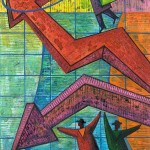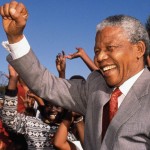 My parents, who lived through the Great Depression, instilled the value of resourcefulness within me at a very young age. To this day, it is one of my top values. From the time I was a child, I found a way to recycle/repurpose long before it became fashionable. Yet the term takes on a slightly different meaning in the professional world. How can you be resourceful in your work environment?
My parents, who lived through the Great Depression, instilled the value of resourcefulness within me at a very young age. To this day, it is one of my top values. From the time I was a child, I found a way to recycle/repurpose long before it became fashionable. Yet the term takes on a slightly different meaning in the professional world. How can you be resourceful in your work environment?
Resourcefulness in the workplace is vitally important to an organization’s success. The Center for Creative Leadership identified resourcefulness as one of the top five skills a leader must possess in its 2009 study, The Leadership Gap. Within the study, resourcefulness was identified as “working effectively with top management.”
What value has resourcefulness brought to companies and organizations in the past five years? The most recent recession forced many to tighten their belts and be more resourceful, yet, what does that mean? In my opinion, being resourceful at work also includes:
- Involving key contributors in strategic decisions
- Honoring organizational priorities
- Creatively pursuing options and possibilities
- Including some new voices in the conversation, especially those who are rarely asked or who may get lost within the organization’s hierarchy
- Knowing where to go for answers
- Asking tough questions
- Considering new solutions to age-old problems
- Engaging workers in the mindset of “sustainability”
Being known at work as someone who is resourceful can position you as a leader who cares about the company, its mission and its people. How can you become more resourceful at work?

